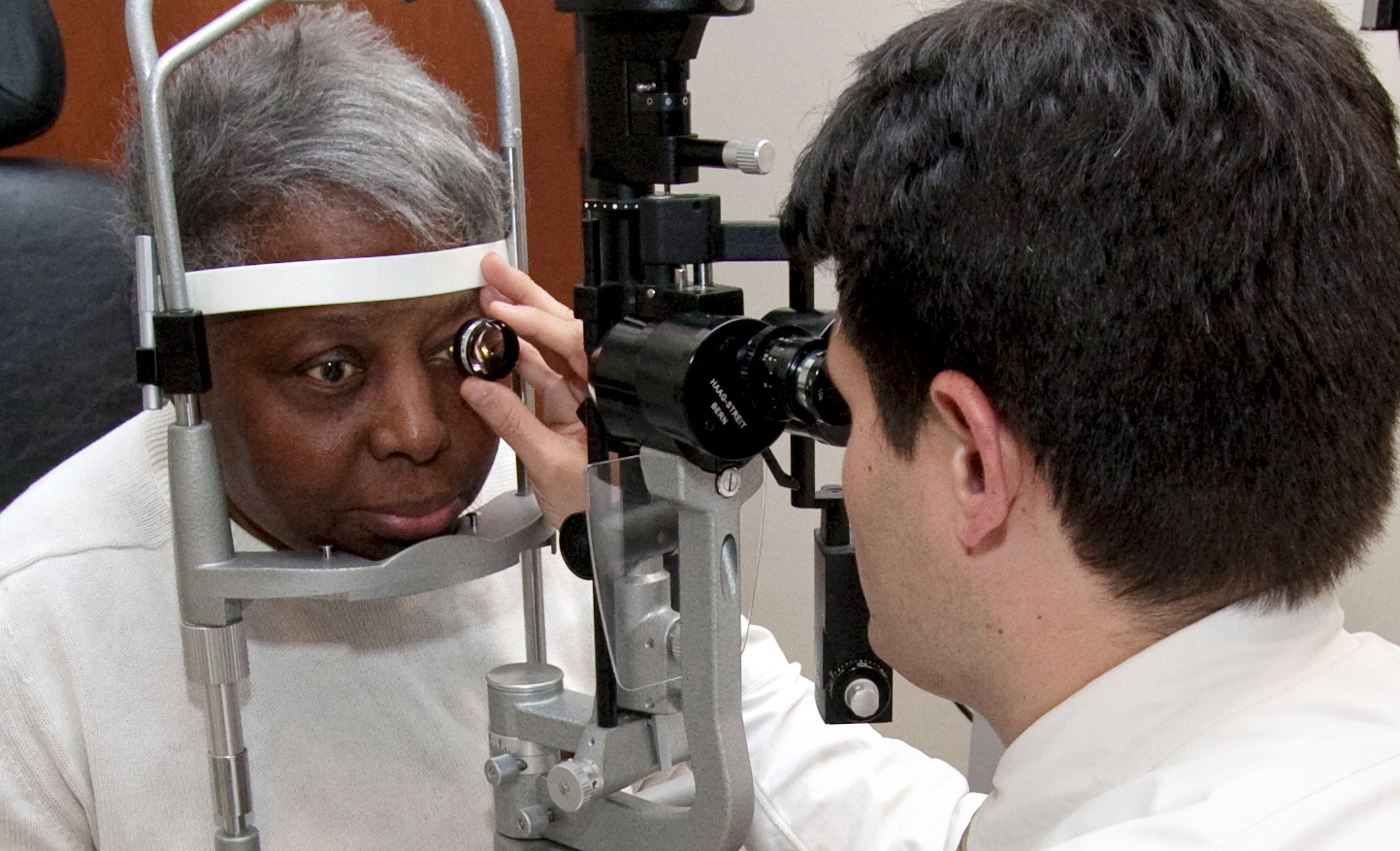An overview of the Ophthalmology Residency Program

Each year, the Emory Department of Ophthalmology admits six medical school graduates to our program, for a total of 24 residents. First-year residents complete their internship year at the Emory School of Medicine while the remaining 18 are actively trained and mentored by the department's clinical and research faculty.
Academically, the department is aligned with the Basic and Clinical Science Course (BCSC) published by the American Academy of Ophthalmology (AAO). We are governed by the Emory School of Medicine’s Policies and Procedures.
Graduates of the Emory Eye Center residency program are fully prepared to practice comprehensive ophthalmology. On average 67% of our residents opted to pursue further training through an ophthalmic subspecialty fellowship after completing residency over the last 10 years.

Comprehensive Rotations
The sheer size and complexity of the Emory Healthcare system ensures that Emory Eye Center residents and fellows gain a wealth of experience addressing a broad range of conditions and services, including cornea/external disease, refractive surgery, glaucoma, retina/vitreous, oculoplastics, pediatric ophthalmology, neuro-ophthalmology, contact lenses, low vision, and ocular pathology.
Residents have extra-curricular opportunities to volunteer at outreach clinics outside of their residency schedule. Clinical rotations take place at Emory Grady Hospital, the VA, as part of rotations throughout speciliaties throughout the emory healthcare system.
Each year, residents complete 12 clinical rotations at our two teaching hospitals (Grady Hospital and the VA Medical Center) and in various subspecialties throughout the Emory Healthcare system. Each rotation is four to five weeks long. In addition, residents are assigned to an on-call schedule where experienced clinical mentors introduce them to the practice of autonomous patient care.
Extensive Surgical Training
The Department of Ophthalmology is committed to providing residents with high-quality surgical and technical training throughout their residency. Residents are mentored to assume the role of the primary surgeon in major procedures well before their PGY-4. The most recent graduating class of residents entered their medical practice with a substantial resume of surgical procedures:
- Cataract: 245
- Strabismus: 13
- Glaucoma:14
- Plastics: 135
- Major traumas: 13
- Lasers (YAG, LI, SLT, PRP, Focal): 105
Integrated Didactics
Clinical and surgical training is complemented by a combination of protected didactic time, journal clubs, surgical conferences, subspecialty conferences, and formal faculty mentorship. Here are some highlights of our integrated didactic program:
- Grand Rounds: Department-wide grand rounds occurs every Friday from 8-9am. Grand rounds presentations include speakers from among the Emory Emory Eye Center fellows, clinical faculty, vision researchers, residents, and visiting lecturers.
- Friday Lectures: Every Friday from 7 am until noon residents attend a series of lectures, given by Department of Ophthalmology faculty and select faculty from the Emory School of Medicine. These protected didactic sessions are organized into blocks by subspecialty.
- Surgical Conferences: Residents take the lead in presenting and analyzing videos of their surgeries on a monthly basis. Routine and complex surgeries are reviewed, giving all residents insight into both surgical planning and technique.
- Wet Lab Expereince: Surgical education is supplemented by cataract surgery and subspecialty surgery wet labs held throughout the year. Residency-wide cataract surgery wet labs are held quarterly, and the Emory Cataract Surgery Course occurs each spring. PGY-3 and PGY-4 residents have the opportunity to attend the Alcon CSE and Harvard Cataract Surgery courses. Subspecialty wet labs are integrated into each didactic block.
- Retinal Imaging Conferences. Monthly retinal imaging conferences analyze common and rare pathologies using state-of-the-art imaging technologies, such as fluorescein angiography (FA), optical coherence tomography (OCT), ICG angiography, and electroretinography (ERG).
- Cornea Conference: Monthly cornea conferences bring together the Emory Eye Center's cornea specialists with both residents and fellows for an in-depth analysis of common, challenging, and unusual cases.
- Quarterly Eye Pathology Conferences: Residents and fellows test their ophthalmic pathology knowledge and training with a series of online "unknown" case studies. These password-protected online courses and tutorials challenge residents and fellows in a manner that closely mimics the real-world diagnostic and treatment process.
- Mentorship Program: At the beginning of residency, each resident selects a faculty mentor who they will meet twice yearly to discuss personal and career development as they move through residency.
- Review Sessions for the Ophthalmic Knowledge Assessment (OKAP). Faculty-led reviews are held in the winter and spring to prepare residents for their boards.
- Journal Club: Each of the ophthalmic specialties convenes a monthly meeting of faculty, fellows, and residents where emerging research findings from that specialty are assessed and analyzed. Residents can expect to present at these club meetings.
- The EEC Lectures: Every week, the Emory Eye Center hosts between one and four presentations by clinicians, researchers, and other experts in ophthalmology. Speakers include members of the Atlanta Vision Research Community (AVRC), EEC fellows and residents, and nationally recognized specialists in the field.
- Global Ophthalmology Distinction Program: This optional 2.5-year companion program integrates traditional residency training with teaching modules and practicums that focus on the ethical, compassionate, and professional delivery of eye care to under-resourced populations and geographies. Residents graduate with a Distinction in Global Ophthalmology.
Multi-disciplinary Translational Research
Residents and fellows of the Emory Eye Center have the opportunity to get involved in a full range of basic, translational, and clinical vision-related research activities. Many work with scientists from one of 17 established labs. They also collaborate and consult with researchers from other Emory School of Medicine departments, Georgia Tech's School of Biomedical Engineering, Emory’s Yerkes National Primate Research Center, and the Atlanta Veterans Administration Hospital.
All residents have the opportunity to rotate through the L.F. Montgomery Lab, one of the nation’s few full-time eye pathology laboratories. The laboratory is involved with diagnostic and experimental eye pathology, in particular ocular melanoma and age-related macular degeneration.
Residents and fellows can expect to present the findings of their ophthalmic research through the Center's Lecture Series, at professional conferences such as ARVO or AAO, or through publication in a professional journal.

